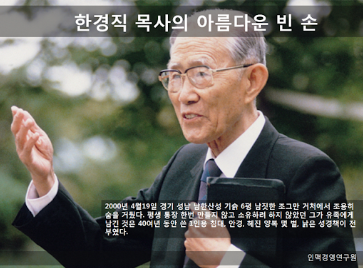소유가 적으면 어깨가 가볍습니다. When we own little, our shoulders feel lighter.
6/8/20251 min read


“한 달 수입이 천 불인데 스토리지에 $250을 내신다구요?”
“거기엔 내 가구들이 들어있습니다. 언젠가 큰 집으로 이사가면 사용할 물건들입니다.” 걷지 못하는 80대 노인이 하신 말씀입니다.
많지 않은 집세를 내지 못해 집을 포기해야 했던 분이 이런 말씀을 하시니 안타까웠습니다.
하지만 스토리지 회사들은 사람들의 이런 심리 때문에 다들 번창합니다.
이런 점은 애플이나 마이크로소프트도 비슷합니다.
무심코 찍어대지만 거의 보지 않는 사진들을 비롯, 데이터가 많아지면 “당신의 데이터는 더이상 저장되지 않을 거”라는 협박조의 이메일들을 보내옵니다.
돈내라는 말씀.
살아 생전 검소하기로 유명했던 한경직 목사님은 그 분의 소유물이 매우 적었던 것으로 유명합니다.
목사님의 얇은 외투를 안타깝게 여기던 한 성도가 좋은 외투를 선물하니 그걸 그 날 바로 걸인에게 주었다는 분입니다.
소유가 적으면 어깨가 가볍습니다. 떠나는 것도 어렵지 않습니다.
우리는 소망의 나라를 기다리는 사람들, 떠날 준비를 하는 사람들입니다.
“You’re making a thousand dollars a month, and you’re paying $250 for storage?”
“That’s where my furniture is. I’ll use them someday when I move into a big house.”
These were the words of a man in his 80s who can no longer walk.
He had to give up his home because he couldn’t afford the modest rent, which makes his words all the more heartbreaking.
Yet storage companies thrive on this kind of mindset.
In fact, companies like Apple and Microsoft operate on a similar principle.
We take countless photos and store all kinds of data we rarely ever look at.
But as our storage grows, they send emails with a warning tone: “Your data will no longer be saved unless you upgrade.”
In other words, pay up.
Pastor Han Kyung-Jik, known for his humble lifestyle, famously owned very few possessions.
When a member of his congregation saw his thin coat and gifted him a warm one, he gave it away to a beggar that same day.
When we own little, our shoulders feel lighter. Departing becomes easier.
We are people who are waiting for a kingdom of hope.
We are people preparing to leave.
